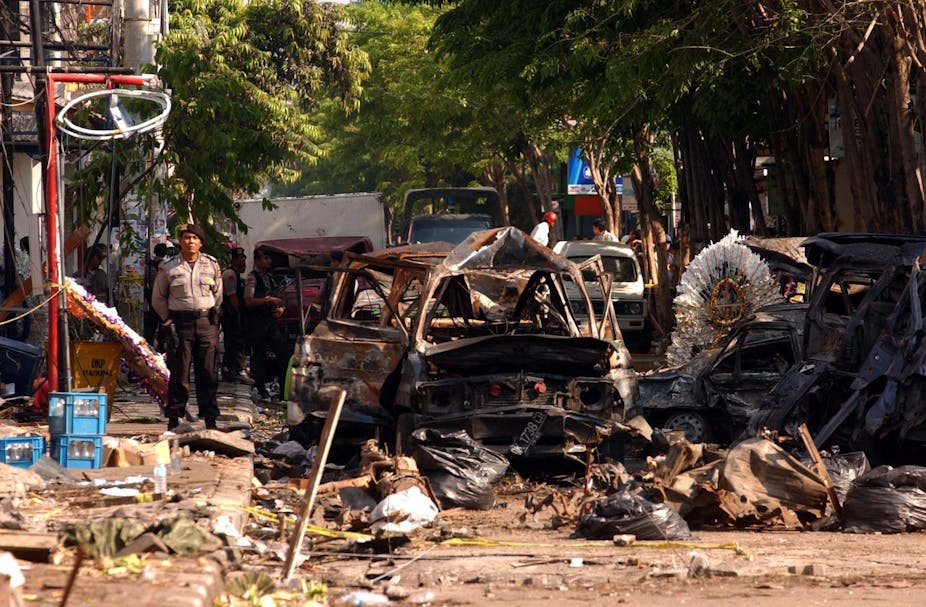The Coalition has promised it will “rebuild” Australia’s frontline national security agencies if it wins government at the upcoming election.
Shadow attorney general spokesman George Brandis has laid out three distinct policies to “fix” Australia’s apparent national security crisis - increased resourcing for the security sector including Australian Security Intelligence Organisation (ASIO), a renewed focus on terrorism and the elevation of cyber-security as a key priority.
Election fever can create all sorts of unusual policy utterances and chest-beating exercises. While national security themes tend to only grab public attention sporadically, usually after an attack of some sort, terrorism or border security remain hot button political issues.
This is especially true since 9/11, in which a sense of insecurity and vulnerability has played a large role in the shaping our collective worldview and preferred security responses.
Brandis also criticised prime minister Julia Gillard for making a “serious policy mistake” in her national security address earlier this year when she said that “the 9/11 decade is ending and a new one is taking its place”.
But the Coalition’s statements lack substance.
To often policy makers are seduced into over-inflating threats and indulging in what can be called “security theatre” – flashy promises that look like bold, positive steps to bolster security and “do something” but actually contribute very little to enhance a person security and safety. In fact, such adhoc and irrational policy frameworks are, and have been, highly counter-productive.

The post 9/11 world has already seen dramatic increases in security outlays. In January 2013, the Gillard government correctly announced that, since those attacks, Australia’s overall intelligence budget had “tripled”. And while not offering an iron-clad guarantee, Brandis indicated that even more money should be thrown at the security sector.
It is certainly not unreasonable to argue that organisations like ASIO were under-funded in the past, especially at the end of the Cold War with its anticipated “peace dividend”.
But it is wrong to presume that increased budgets will automatically lead to better security. Such an approach can wrongly presume an intelligence system is hopelessly broken in the endless pursuit of absolute security or even act to encourage the scapegoating of the intelligence sector.
Improvements in performance might be better achieved by addressing items such as improved coordination between agencies, building corporate knowledge and memory or improving analytical capacity. We have seen plenty of warning signs from the US that its own cash frenzy has created bigger but more unwieldy bureaucracies, reinforced outdated work habits and spurred the wasteful duplication of security efforts.
Brandis stated that the likelihood of a terrorist attack was as great as ever, and that the prime minister has “de-emphasised” the terror problem.
But emotive speculation about looming nightmare scenarios both feeds into and encourages public anxiety and political overreach. Such motivations remain a very poor basis for calculated future decision-making. As a result, we have tended to overact – our security mindset is too often trying akin to trying to smash fleas with a sledge hammer.
Gillard’s policy has simply mirrored a more recent, and level-headed, wider international trend: that groups like al-Qaeda should not be presented as an existential threat. In mid-2013, US president Barrack Obama declared in regard to fighting terrorism that:
…unless we discipline our thinking, our definitions, our actions, we may be drawn into more wars we don’t need to fight, or continue to grant Presidents unbound powers more suited for traditional armed conflicts between nation states.
Brandis claimed that cyber espionage is arguably the “single biggest threat to national security”. But the threat of cyber-terrorism is over-hyped. Abstract considerations about the ease, scale and implications of a cyber-attack on military, financial and related computer systems are too readily presented from an unrealistic or superficial standpoint.
Again, political or media beat-up about an emerging cyber-terror pandemic will lead to persistent public confusion, unnecessary economic burdens and heavy-handed legislative reactions.

Brandis points to ongoing tension between the US and China over cyber-espionage. But that does not represent war or even conflict. It is old fashioned spying built on a new medium – the internet. And countries have been spying on each other since the beginning of time.
While a serious headache, ongoing cyber-exploitation - stealing trade secrets - has never been a trigger for war. Further, in effectively dealing with such problems, policymakers need to turn legal and diplomatic, not a militarised, response.
Finally, Brandis effectively ruled out any changes to the controversial suite of terror laws introduced by the Howard government in 2005.
At a domestic level, citizens in democratic societies have displayed a willingness to sacrifice age-old civil and political liberties and traditional safeguards for optimum protection, and ironically, to preserve “who we are” – the “we had to destroy the village in order to save it” logic.
At the same time, these rapid movements in law-making in 2005 failed to balance the transfer of power to the executive branch and security sector with the actual nature and level of the threat. The outcomes of the Howard government’s legislative free-for-all needs to be revisited.
In May 2013, a report tabled in parliament from the Independent National Security Legislation Monitor highlighted concerns about sweeping, unspecific terror laws and expressed apprehension about a lack of strict checks and balances. The Monitor even suggested some of ASIO’s powers should be scaled back.
It is a shame that the Coalition has decided to paint their security framework by staring into a broken and outdated rear mirror.

